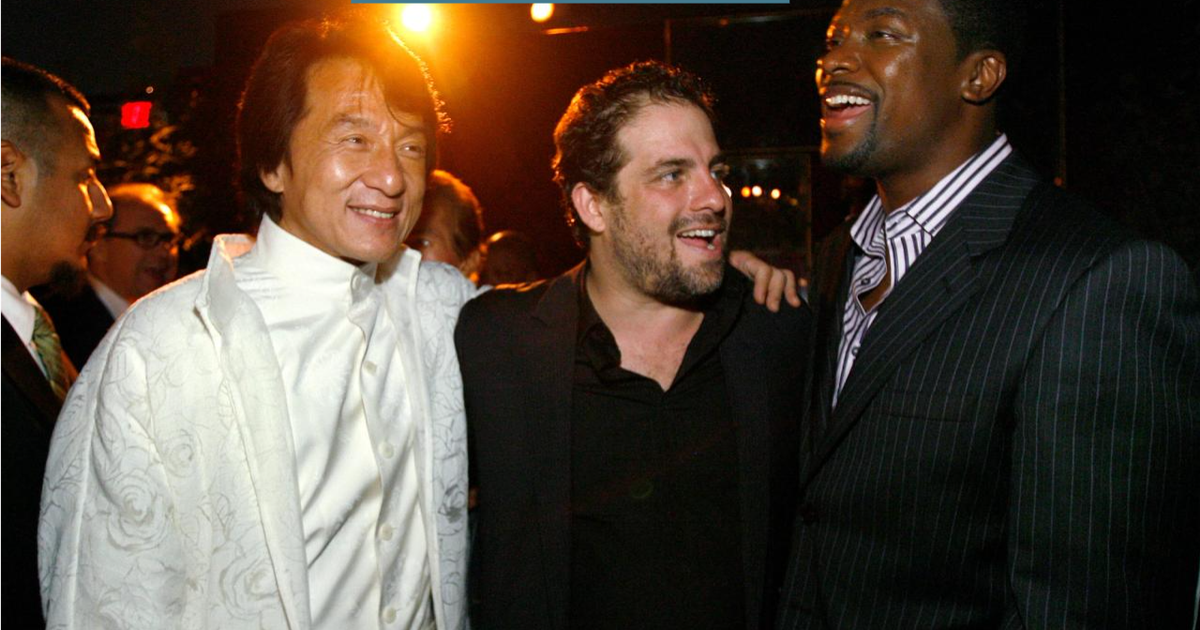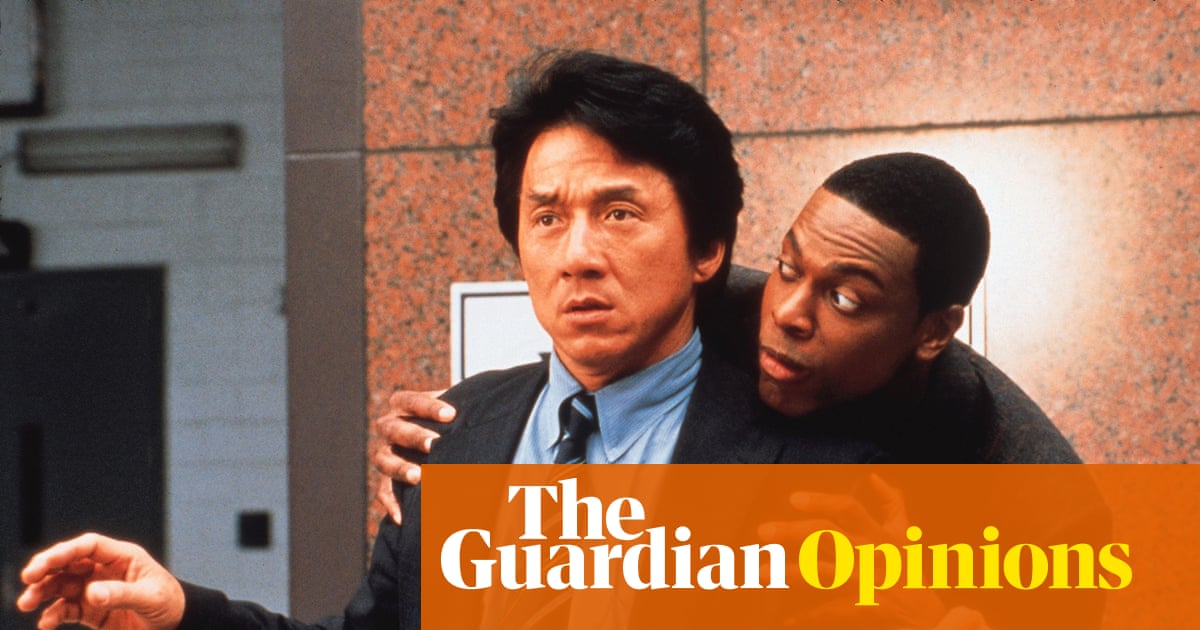1. It’s Not About a Movie Anymore
This isn’t about a movie. Let’s get that straight right now. This is a signal. A flare in the dark. They are telling you what they’re about to do, and they are counting on you being too distracted by nostalgia and cheap laughs to notice. Do you understand? They think you’re stupid. They are banking on it.
Paramount Pictures. A legacy studio. Releasing a Brett Ratner film. Why now? Why this film? Because Donald Trump, the man who conquered the political world, has set his sights on the final frontier: our culture. Our stories. The very fabric of what we believe. He solved everything else, right? So now he’s coming for Hollywood. And Rush Hour 4 is the Trojan Horse he’s using to breach the walls. It’s happening in plain sight.
The Canary in the Coal Mine
This is the test. Can they resurrect a man like Brett Ratner, a man chased out of town by a wave of horrific allegations, and put him back at the helm of a massive blockbuster? If the answer is yes, then all bets are off. Every canceled figure, every disgraced power player, every monster hiding in the shadows gets a green light to come crawling back. Is that the world you want? Because that’s the world they’re building while you’re debating the box office numbers.
2. The Brett Ratner Gambit
Don’t forget who Brett Ratner is. Don’t you dare forget. Hollywood tried to make you forget, but we have to remember. The allegations against him weren’t minor missteps; they were a pattern of behavior that represented the very rot #MeToo sought to expose. And now he’s back. Not with a small indie film, not with a quiet apology tour, but with a nine-figure blockbuster franchise backed by a former President of the United States.
This is a calculated move. A power play. Bringing Ratner back isn’t a bug; it’s the feature. It’s Trump and his allies planting a flag and declaring that the old rules are dead. That accountability is a joke. That they can and will install whomever they want, whenever they want. This is about loyalty. Ratner is their guy, and by propping him up, they send a message to everyone else in Hollywood: get with the program, or get run over. Are you listening yet? This is a threat.
3. Trump’s Hollywood Endgame
He’s always craved it. The celebrity. The glamour. The power that Hollywood wields, a power far more subtle and pervasive than any political office. Trump didn’t just want to be President; he wanted to be the ultimate kingmaker, the arbiter of taste, the man who controls the narrative. He did it with reality TV, turning ‘The Apprentice’ into a national phenomenon that reshaped our perception of success and ultimately paved his road to the White House, and now he’s coming for the whole kingdom.
This isn’t a conspiracy theory; it’s reading the writing on the wall. He’s trying to remake American culture in his image, starting with his favorite things—loud, simple, buddy-cop action movies that celebrate brash authority and paper over complex issues with explosions and one-liners. He wants to control the stories we tell ourselves because he knows that if you control the stories, you control the people. This is how it starts. A movie. Then a studio. Then an entire industry. Then the mind of a nation.
4. The Desperation of Paramount
So why does a studio like Paramount go along with this? Why would they touch this? The answer is simple and terrifying: desperation. Hollywood is bleeding. The old models are broken. Streaming has gutted the theatrical experience, superhero fatigue is real, and the whole glittering edifice is teetering on a mountain of debt. They are vulnerable. And into that vacuum of power and cash steps a political machine with deep pockets and a clear agenda.
A Deal with the Devil
Paramount isn’t just distributing a movie; they’re accepting a bailout. They’re taking the money and the influence because they’re too weak to say no. This is how control is seized—not with a hostile takeover, but with a friendly distribution deal, a ‘double-digit percent fee’ that sounds like harmless business but is actually the price of their soul. They are letting the fox into the henhouse for a taste of the chickens. Do they even realize the doors are being locked behind them? This sets a precedent. If Paramount will do it, who’s next? Universal? Disney? How long until every studio has a political master pulling the strings?
5. The Propaganda of the Buddy Cop
Think about the message of a movie like Rush Hour, especially now. In an era of intense debate about policing, accountability, and international relations, what does this franchise represent? It’s a fantasy. A feel-good story where two cops from different cultures, a loud-mouthed American and a disciplined Chinese officer, solve everything with fists and friendship. It tells you that authority is ultimately good, that conflicts can be resolved with a punchline, and that systemic problems don’t really exist.
It’s a pacifier. It’s bread and circuses for a nervous population. In Trump’s vision for America, this is the perfect cultural product. No challenging questions. No moral ambiguity. Just good guys, bad guys, and a guarantee that the system works, even if it has to bend the rules. It’s a dangerously simplistic message for a dangerously complex time, and they are about to pump it directly into the mainstream. It’s an opiate, and the dealer is in the highest office in the land.
6. The Great Cultural Rollback
This is bigger than one movie. It’s bigger than Ratner. It’s bigger than Trump. This is the blueprint for a full-scale cultural rollback. For the last decade, we’ve seen a push for more diverse stories, more nuanced characters, and a confrontation with the ugly parts of our history. This movement sees all of that as a threat. It seeks to replace it with a return to a mythical ‘good old days’ of filmmaking—a time dominated by uncomplicated male heroes and clear-cut morality.
If Rush Hour 4 is a success, what comes next? A revival of Dirty Harry, celebrating a cop who operates outside the law? A new Rambo, refighting old wars with a modern political slant? They will dig up every franchise that reinforces their worldview and reboot it for a new generation. They will use nostalgia as a weapon to erase progress. This is an attempt to turn back the clock on culture itself. They are fighting for the past, and they are using our favorite movies to do it. Are we going to let them win?
7. The Silence of the Lambs
Where is the outrage? Where are the Hollywood A-listers who built their brands on speaking out? Their silence is deafening. It’s terrifying. It tells you everything you need to know about where the power is shifting. People are scared. They know which way the wind is blowing. An actor who speaks out against this project risks getting blacklisted not just from one movie, but from an entire emerging power structure that is poised to take over the industry.
The news from CNN about Trump’s war on journalists isn’t a separate story. It’s the same story. This is a two-pronged attack: on one side, you silence and discredit the free press, the people who are supposed to hold you accountable. On the other side, you seize control of the culture, the dream factory that shapes the hearts and minds of the public. You discredit the truth-tellers and replace them with storytellers who will tell your story. It’s a classic authoritarian playbook, and it’s unfolding right in front of our eyes. This is an emergency. The question is, is anyone left to answer the call?


